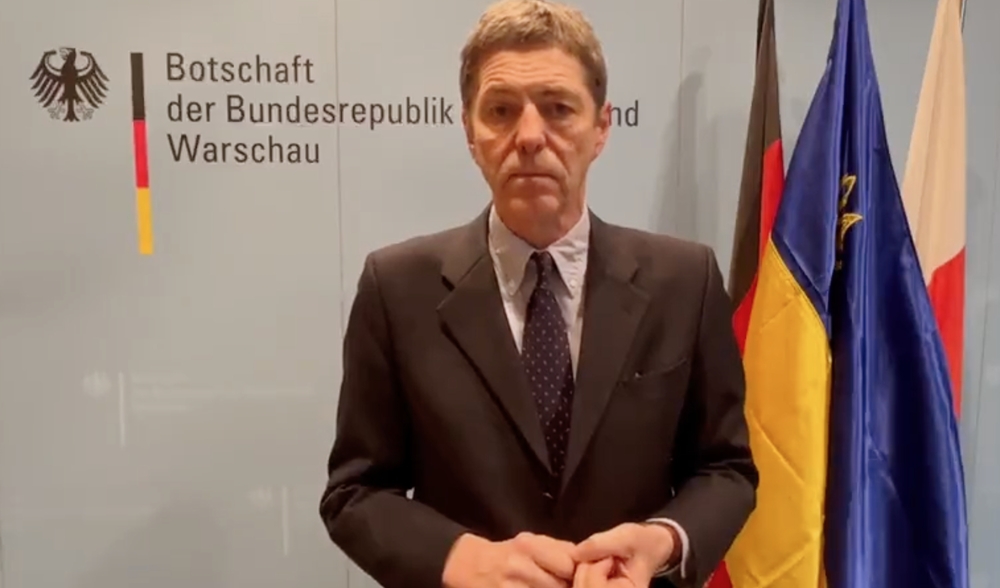German Ambassador to Poland Arndt Freytag von Loringhoven in an interview with Polish daily Rzeczpospolita argues that while it is obvious today that Moscow has rejected dialogue and cooperation, this was not the case when Putin came to power 20 years ago.
But he conceded that it took Germany too long to understand Putin’s game and that Poland seems to have deciphered him much sooner.
Germany’s man in Warsaw was also open to the idea of German troops being engaged in territorial defense of Poland and other NATO eastern flank states. He reminded that the German army was already involved in defending Lithuania and that Russian aggression against Ukraine will lead to changes in German military doctrine.
Von Loringhoven was defensive about the charge of Germany having been naïve in its dealings with Russia. He recalled that Germany’s policy was always built on two pillars: deterrence and dialogue.
[pp id=30354]
For years Germany kept making offers of cooperation to Putin in order to hold out the hope of modernizing that country. It is now obvious that Moscow rejects this, but this was not so 20 years ago when Putin came to power.
“Maybe it took us too long to understand this, and Poles understood Russia’s policy better,” concludes von Loringhoven.
He feels that Poles, like the Baltic states, have suffered for centuries as a result of Russian imperialism and therefore sees the Kremlin as a source of aggression. Germany in turn, argues von Loringhoven, felt that it was possible for Russia to change, since Germany itself changed radically after 1945.
That belief in Russia’s capacity for change was encouraged by a constructive relationship that was struck during the reunification of Germany in the 1990s. But Germany always remained cautious and never offered Russia either NATO or EU membership.
“This is why it is wrong to talk about us being naïve,” summed up von Loringhoven.




